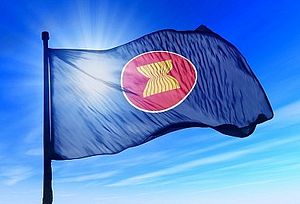After years of canvassing and lobbying, Timor-Leste will be ready to become the 11th member of ASEAN by next year following extensive talks with Indonesia. If its admission is realized, it could potentially provide an economic boom for the tiny Southeast Asian backwater.
Indonesian ambassador to ASEAN, Rahmat Pramono, made the announcement saying a feasibility study had been undertaken, highlighting three pillars – politics and security, economy, and socio-cultural – and its submission was almost completed.
“The politics, security and economy studies have been assessed, while the socio-cultural assessment is expected to be completed by the end of this year,” Rahmat said.
Timor-Leste submitted an application to join ASEAN in 2011 when Indonesia took its turn as chair of the group and member countries agreed to undertake the feasibility study. Indonesia is by far the biggest member of ASEAN.
Dili then stepped up its efforts to join in early 2012 when then Foreign Minister Zacarius Albano da Costa went scouting for support among its ten members. Singapore and Laos are reportedly not entirely enamored by Timor-Leste joining the ranks of the regional grouping.
Human rights and a lack of independence among institutions within Southeast Asian nations are a constant source of criticism and Timor-Leste – while troubled – consistently ranks higher as a democratic state than other members of ASEAN.
Vietnam and Laos remain communist, while Brunei is an absolute monarchy/Islamic state and imposes Sharia Law. Laos, which is chairing ASEAN this year, has been particularly haunted by the disappearance of Sombath Somphone, who was last seen being bundled into a police car.
However, Thailand did top da Costa’s list of states prepared to back his country’s bid, with Bangkok among the first to recognize Timor-Leste’s independence and establish diplomatic relations in 2002.
It was a turbulent time with United Nations-backed troops dispatched.
Further outbreaks of violence followed a coup in 2006 and prompted the re-deployment of United Nations and Australian forces. This was substantially bolstered by more Australian troops two years later amid further bloodshed and an attempt on then-prime minister Jose Ramos-Horta’s life.
Ramos-Horta shared the Nobel Peace Prize in 1996 and has proved himself a unifying force in a country prone to internal upheavals.
If successful, Papua New Guinea (PNG) could also follow Timor-Leste’s lead. However, PNG would struggle to convince the wider region that the internal divisions that feed tribal, ethnic and religious tensions within the country can be resolved.
Helping its bid, politicians in Timor-Leste have made progress on border negotiations with Indonesia. About 98 percent of land control has already been agreed upon after assurances over land rights were accepted by families living along the border.
Dili has also agreed to send maids to Malaysia, which has struggled to attract foreign workers with its low pay and poor treatment making headlines around the region.
Rahmat said human resources in Timor-Leste was a priority with development needed in order to bolster the economy.
“However, Timor-Leste does not need to wait to complete development of its human resources to become a member of ASEAN. This can be done after Timor-Leste has joined the big family of the ASEAN,” Rahmat said.
He added a meeting of all ten ASEAN countries would be held in the near future to discuss Timor-Leste’s membership to the bloc, a decision that will have enormous economic implications for the country.
Cambodia, Laos and Myanmar were the last few countries admitted to ASEAN in the 1990s, when all three were suffering economically.
Luke Hunt can be followed on Twitter @lukeanthonyhunt

































